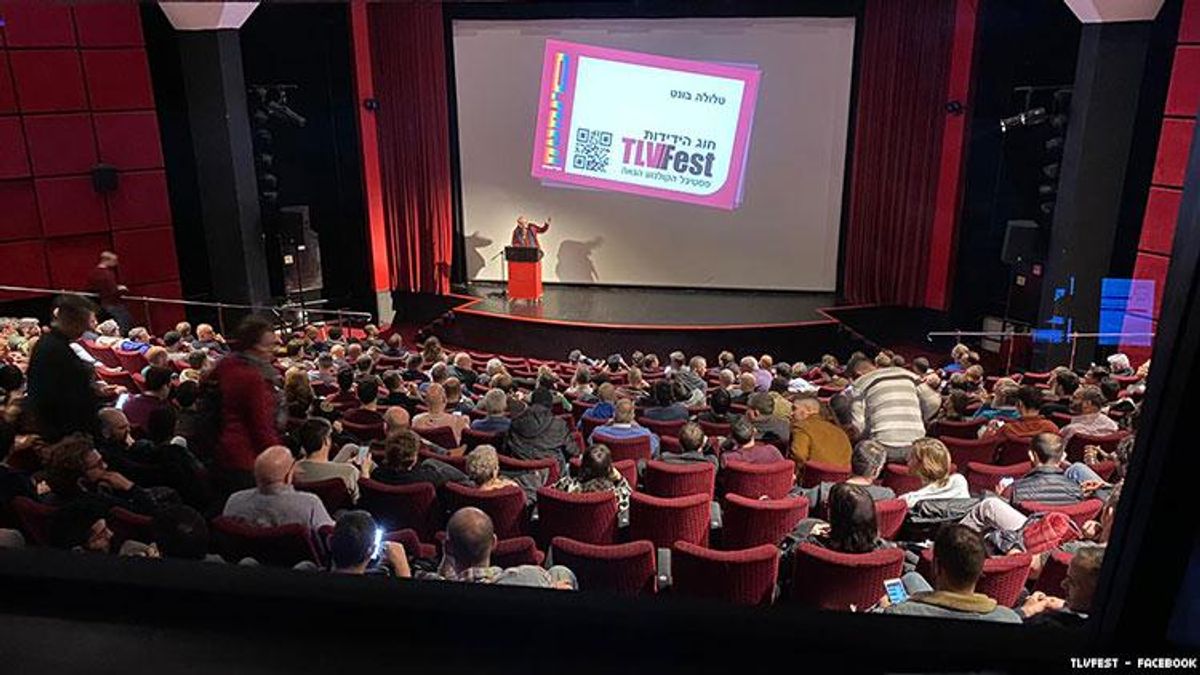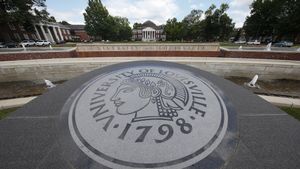Over 130 filmmakers -- at least 100 of which are LGBTQ-identifying -- have signed a petition boycotting TLVFest, an LGBTQ+ film festival sponsored by the government of Tel Aviv.
The Palestinian Campaign for the Academic and Cultural Boycott of Israel (PACBI) spearheaded the petition in conjunction with other queer and grassroots organizations, in order to protest Israel's occupation of Palestinian territories and its treatment of Palestinian people.
The petition asserts that LGBTQ+ equality is "intimately connected to the liberation of all oppressed peoples and communities." Its signers have vowed to boycott TLVFest and other state-sponsored events "until Israel complies with international law and respects Palestinian human rights," according to text obtained by The Hollywood Reporter.
Signatories include Touch of Pink director Ian Iqbal Rashid, AIDS historian Sarah Schulman, and Turner Prize winner Charlotte Prodger.
TLVFest, which runs June 4 to 13, partners with the Israeli Ministry of Culture. This year marks its 15th anniversary, and campaigners allege that the festival has refused to speak with them over the course of its run. As a result, petitioners allege that the festival is an act of "pinkwashing," a strategy in which state players pretend to wave the flag of LGBTQ+ rights to distract from dubious or discriminatory behavior.
As PACBI phrases it, Israel is attempting to "project a progressive image while denying the rights of all Palestinians, queer and non-queer alike." Thus, the boycott represents a "new, proactive stand by queer film artists in solidarity with the Palestinian struggle for freedom, justice, and dignity."
Historically, the Israeli-Palestinian conflict centers on Israel's occupation of Palestinian territory. "For many years, successive Israeli governments refused to consider a Palestinian state, while most Arabs denied the legitimacy of Israel," notes the Global Policy Forum, an independent group with consultative status at the United Nations.
Attempts to resolve the conflict have been going on since the 1970s but have been complicated by many factors. While some pro-Palestinian activists see Israel as a colonizer and oppressor, some pro-Israeli ones see the criticism as anti-Semitic and threatening to the existence of Israel.
Israel is viewed as the most pro-LGBTQ+ nation in the Middle East, with polls indicating that a majority of the population supports marriage, adoption, and surrogacy rights for same-sex couples. As early as 2007, Out called Tel Aviv "the gay capital of the Middle East" due to its perception of progressive views.
While critics have seen Israel as taking a right turn regarding views of LGBTQ+ issues in recent years -- the Knesset rejected legislation that would have opened surrogacy to rainbow families, for example -- a recent, unanimous ruling from the nation's high court declared that the government must amend discriminatory legislation and extend the right of surrogacy to same-sex couples and single men.
In Palestine, LGBTQ+ people face more bias and legal hurdles, which spur many to flee to Israel and Israeli-occupied territories. There, they face arrest or deportation due to complications over asylum law related to the ongoing conflict.
RELATED | Hundreds of Homophobes Tried to Storm and Close This Gay Film Premiere





















































































